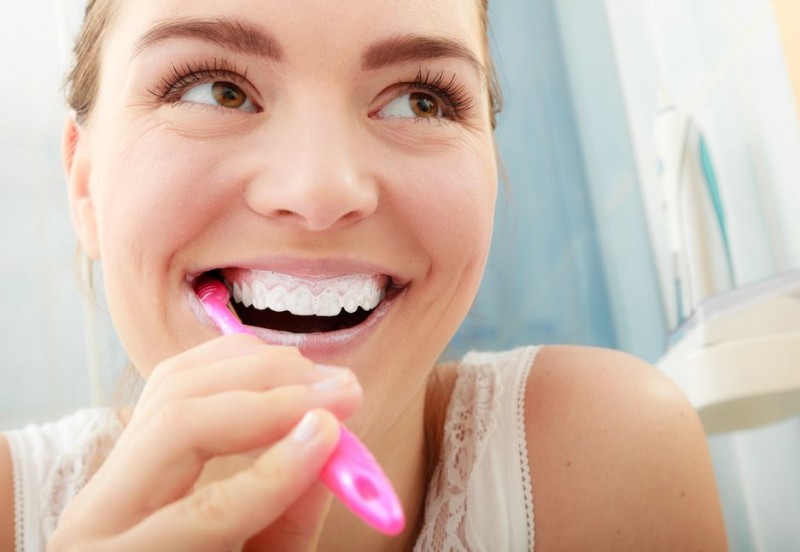
Maintaining good oral hygiene often involves the advice to brush teeth thoroughly twice a day. Effective brushing helps remove bacteria that produce sulfur compounds, commonly responsible for bad breath. However, simply brushing twice daily does not guarantee consistently fresh breath for everyone. Many people complain of bad breath even after diligent brushing. Let's explore why this happens and how to address this issue effectively.
Causes of Bad Breath Despite Brushing
Food Choices:
Certain foods such as onions, garlic, and strong spices contain volatile compounds that can linger in the mouth and cause bad breath. These odors can persist even after brushing due to their absorption into the bloodstream and release through the lungs. To mitigate the effects, it's beneficial to consume breath-freshening foods like apples, mint, and parsley.
Dental Issues:
Cavities, gum disease, and poor oral hygiene can all contribute to bad breath. When food particles and bacteria accumulate in the mouth, they can produce foul-smelling gases. Brushing alone may not reach all areas effectively, especially between teeth and along the gumline. Regular dental check-ups and professional cleanings are essential to address these issues and maintain oral health.
Dry Mouth (Xerostomia):
Saliva plays a crucial role in cleaning the mouth and neutralizing acids produced by plaque bacteria. A dry mouth environment, often caused by medications, medical conditions, or mouth breathing, reduces saliva production. This allows bacteria to thrive and leads to bad breath. Drinking plenty of water, using saliva-stimulating lozenges, and avoiding mouthwashes with alcohol can help alleviate dry mouth symptoms.
Gastroesophageal Reflux Disease (GERD):
GERD is a digestive disorder where stomach acids back up into the esophagus and sometimes reach the mouth. These acids contribute to bad breath by releasing unpleasant odors as they are expelled through the mouth. Managing GERD with lifestyle changes, medication, and dietary adjustments can help reduce the occurrence of bad breath associated with this condition.
Systemic Conditions:
Certain systemic diseases and conditions can contribute to bad breath. These include diabetes, liver disease, respiratory infections, and kidney problems. When these conditions are not well-managed, they can lead to changes in breath odor. It's important for individuals with these conditions to work closely with healthcare professionals to manage their overall health, which can also impact oral health and breath freshness.
Effective Remedies for Bad Breath
Maintain Good Oral Hygiene:
Brush teeth at least twice a day with fluoride toothpaste and use dental floss or interdental brushes to clean between teeth. Cleaning the tongue regularly can also help remove bacteria that contribute to bad breath.
Regular Dental Visits:
Visit the dentist every six months for professional cleanings and oral exams. Dental professionals can detect and treat dental problems early, preventing them from contributing to bad breath.
Hydration:
Drink plenty of water throughout the day to keep the mouth moist and help flush out food particles and bacteria. Chewing sugar-free gum or sucking on sugar-free candies can stimulate saliva production and alleviate dry mouth symptoms.
Healthy Diet Choices:
Limit consumption of foods known to cause bad breath, such as garlic and onions. Instead, incorporate foods that can help freshen breath, such as fresh fruits and vegetables like apples, carrots, and celery.
Manage Underlying Health Conditions:
If bad breath persists despite oral hygiene efforts, consult a healthcare professional to rule out underlying medical conditions. Managing conditions like GERD, diabetes, and respiratory infections can help improve breath odor.
Persistent bad breath can significantly impact self-confidence and social interactions. By understanding the common causes and implementing effective remedies outlined in this article, individuals can take proactive steps to maintain fresh breath and overall oral health. Regular dental care, healthy lifestyle choices, and timely medical intervention are key to addressing bad breath and ensuring a confident smile.
Mass Doctors Strike in England Amid NHS Crisis Ahead of UK General Election
Hydration Alert: Five Foods and Drinks to Avoid When Dehydrated
A Sneak Peek into Apple Watch Series 10: Bigger Display, Advanced Health Tech